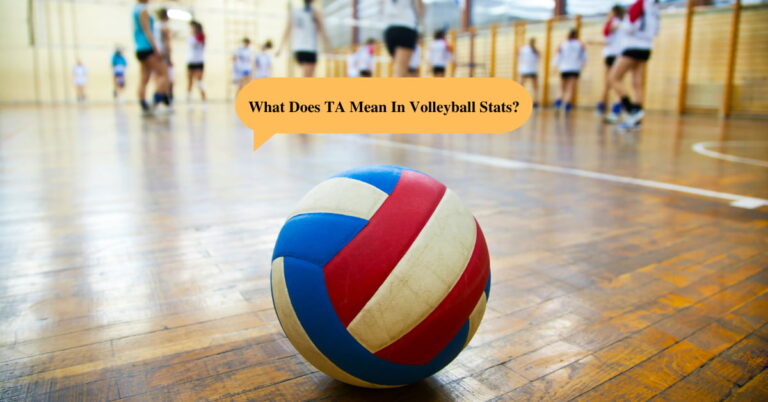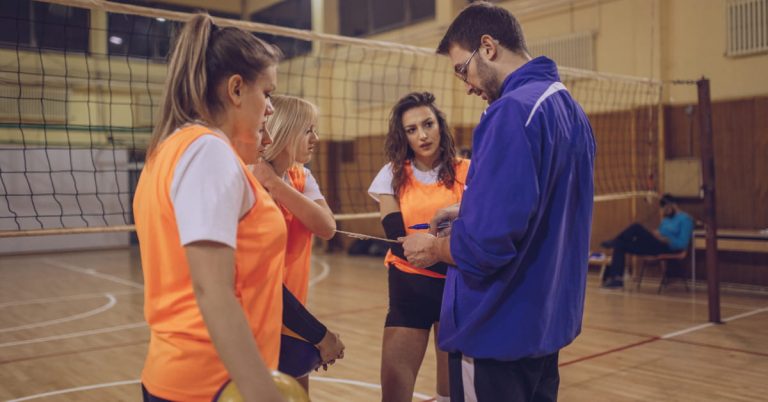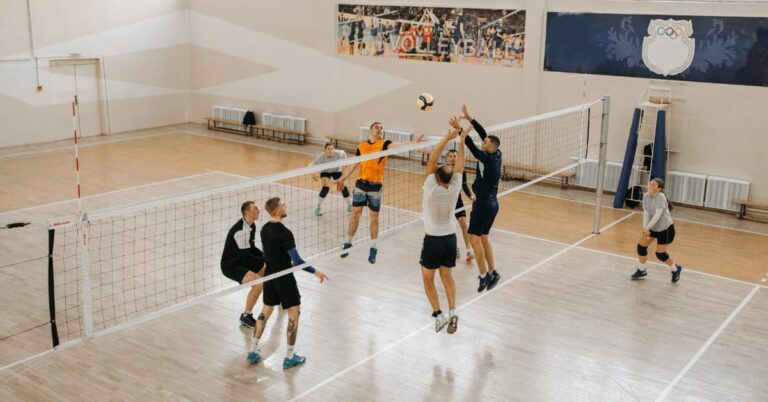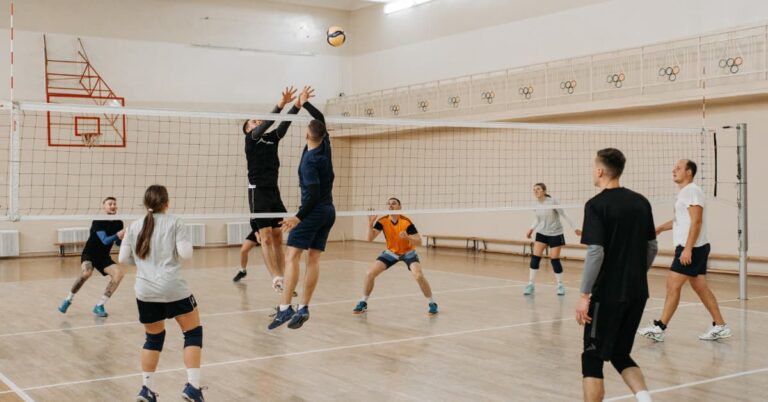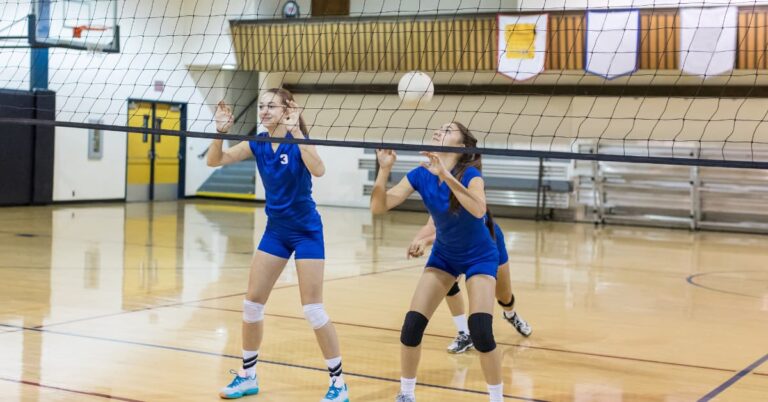What Is JV Volleyball? Explained 3 Level
JV volleyball serves as an essential stepping stone for aspiring athletes on their journey to varsity success. In this article, we will delve into the world of JV volleyball, its significance, eligibility requirements, and its role in preparing players for the challenges of varsity competition.
What Is JV Volleyball?
JV volleyball, short for Junior Varsity volleyball, is a level of play that falls between freshman and varsity volleyball.
It provides an opportunity for athletes to gain experience, refine their skills, and develop their understanding of the game in a supportive and competitive environment.
JV teams often consist of players who are honing their skills and aiming to progress to the varsity level.

Who Can Participate in JV Volleyball?
Eligibility for JV volleyball varies from school to school. In general, JV teams comprise athletes who are typically in their sophomore or junior years of high school.
However, some schools may allow freshmen to participate. JV teams often consist of players who are honing their skills and aiming to progress to the varsity level.
The Importance of JV Volleyball in Preparing for Varsity
JV volleyball plays a crucial role in preparing athletes for varsity competition. It offers players the opportunity to gain valuable experience, refine their skills, and enhance their understanding of the game.
By participating in JV volleyball, athletes can develop their teamwork, communication, and leadership skills, which are essential for success at the varsity level.
Additionally, JV volleyball allows players to adapt to the increased pace and intensity of varsity play, providing a smoother transition when they make the leap to varsity competition.
The Difference Between Freshman, JV, and Varsity Volleyball
The difference between freshman, JV, and varsity volleyball lies in the skill level, experience, and level of competition.
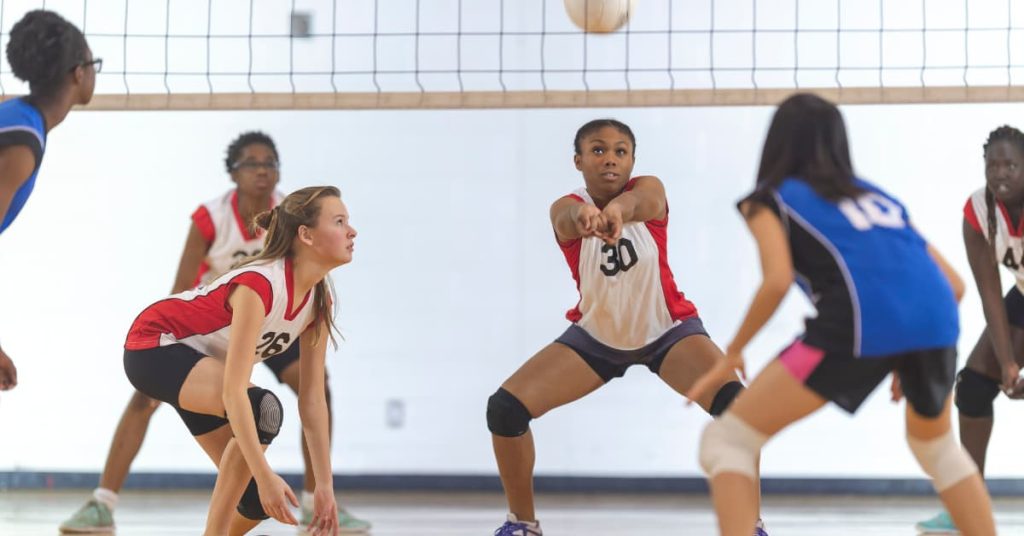
Freshman Volleyball
Freshman volleyball is typically designed for first-year high school students. Who are new to the sport or still developing their skills.
It serves as an introduction to competitive volleyball and focuses on fundamental skill development.
Coaches and teammates provide a supportive environment for players to learn the basics of the game, including serving, passing, setting, hitting, and basic strategies.
Freshman teams often compete against other freshman teams within their school or against neighboring schools.
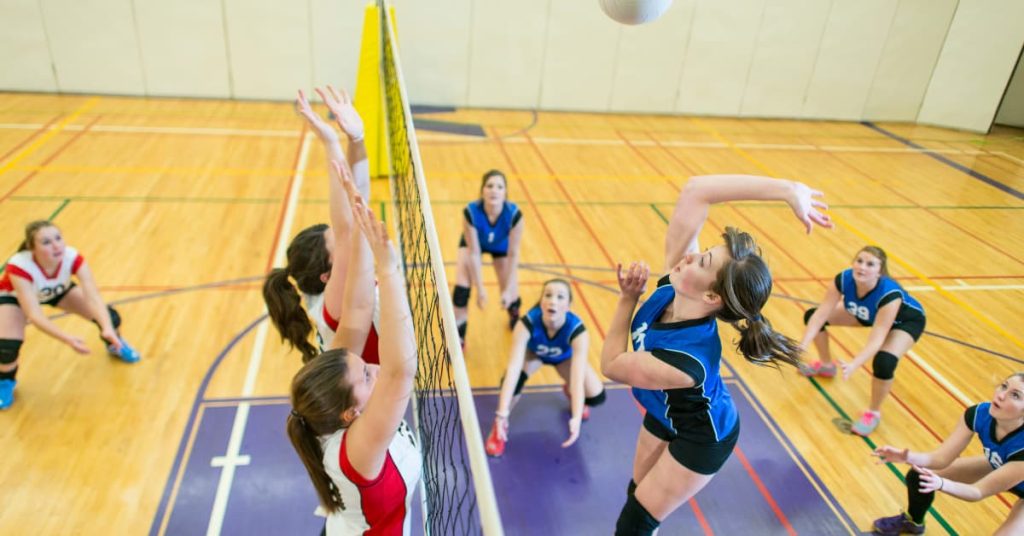
JV Volleyball
JV volleyball is the next level of play after freshman volleyball. It provides a more competitive environment for players who have progressed beyond the introductory stage.
JV teams consist of players who are usually in their sophomore or junior years of high school, although some schools may allow freshmen to participate.
JV volleyball emphasizes honing skills, improving technique, and developing a deeper understanding of the game. The competition level increases compared to freshman volleyball, with matches against other JV teams from different schools.
JV players gain valuable experience that prepares them for the challenge of varsity competition.

Varsity Volleyball
Varsity volleyball represents the highest level of play within a high school. And these teams are comprised of skilled and experienced players.
Varsity volleyball is characterized by intense competition and demanding training. Players showcase their talents in matches against other schools, competing at a more advanced level.
Varsity volleyball requires a high level of skill, athleticism, and strategic thinking. Varsity players often have opportunities for college recruitment and may participate in prestigious tournaments or championships. They represent their school with pride and strive for excellence in every match.
In summary, Freshman volleyball focuses on introducing the sport to new players.
JV volleyball provides a stepping stone for skill development and increased competition.
While varsity volleyball represents the pinnacle of high school volleyball, with highly skilled players competing at an advanced level.
Each level builds upon the previous one, offering players the opportunity to progress and reach their full potential in the sport.
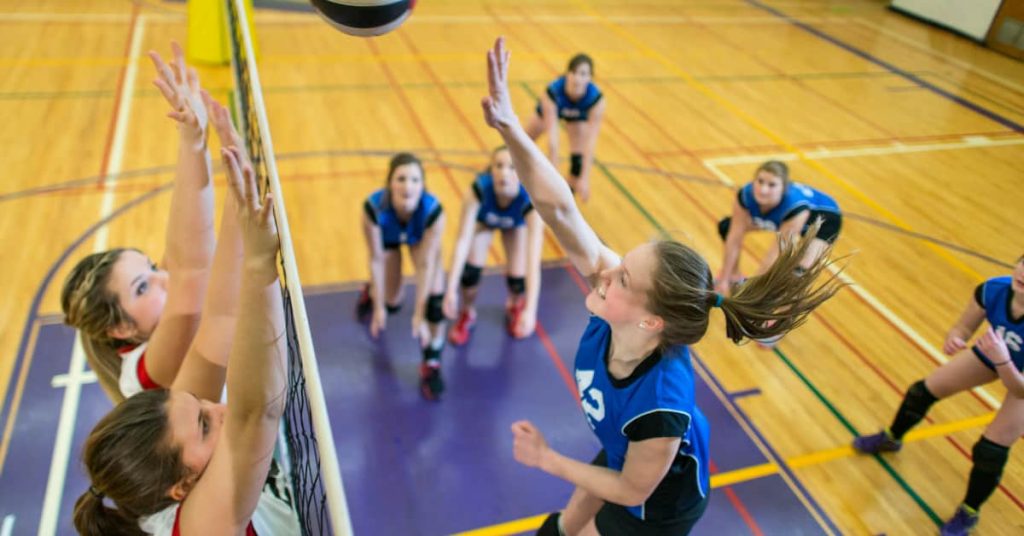
FAQ About JV Volleyball:
What is better than JV?
While JV volleyball provides a valuable platform for skill development, varsity volleyball represents the highest level of competition and accomplishment. Varsity players compete against stronger opponents, showcase their abilities, and represent their school at a more advanced level. However, JV volleyball serves as a crucial stepping stone towards varsity success.
What is a varsity volleyball player?
A varsity volleyball player is an athlete who competes at the highest level of play within their school. Varsity players demonstrate exceptional skills, experience, and commitment to the sport. They represent their school in competitive matches, tournaments, and championships, and often have greater opportunities for college recruitment.
Can players move up from JV to varsity volleyball?
Yes, players have the opportunity to move up from JV to varsity volleyball based on their skills, performance, and dedication. Coaches often assess players’ abilities and potential for growth, and those who demonstrate the necessary skills and commitment may earn a spot on the varsity team. Moving from JV to varsity requires consistent effort, improvement, and a strong work ethic.
Conclusion
Young athletes can develop their skills, gain experience, and prepare for the challenges of varsity volleyball through JV volleyball. It provides valuable opportunities for growth, teamwork, and leadership, ultimately paving the way for success at the varsity level. For volleyball players aspiring to compete at the varsity level or just looking for personal growth, JV volleyball plays a crucial role.
Read these next:
How Many Sets Are in a Volleyball Game?



